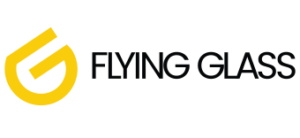Drone laws Kenya: a complete 2025 guide for travellers, filmmakers and locals
If you are comparing across multiple destinations, our single page guide to drone laws by country is a good starting point.
Who sets and enforces drone laws Kenya?
The Kenya Civil Aviation Authority (KCAA) is the primary regulator. They administer the Civil Aviation (Remote Piloted Aircraft Systems) Regulations. All drones are treated as aircraft under Kenyan law, meaning permits, registration, and training are mandatory.
The Kenyan Defence Forces and the Ministry of Interior also have authority, particularly in sensitive locations such as government buildings, airports, and border areas. Understanding drone laws Kenya means recognising that aviation, security, and conservation authorities may all have overlapping roles.
Do you need a permit to fly a drone in Kenya?
Yes. The short answer is that every drone flight in Kenya requires a permit. There is no exemption for small recreational drones under 250 g. This differs from Europe or the US.
For residents, the process involves registering the drone, applying for an operator’s certificate, and often securing insurance. For tourists, a KCAA drone temporary permit is required before bringing a drone into the country.
Can a tourist bring a drone to Kenya?
Can a tourist bring a drone to Kenya? Yes, but only with prior authorisation. Tourists must apply to the KCAA in advance and secure a temporary permit. Without it, your drone may be confiscated at customs. Airlines also expect you to carry lithium batteries in hand luggage and pack them safely.
Tourists who misunderstand drone laws Kenya often assume that small hobby drones are exempt, but this is a common mistake that can result in confiscation at Nairobi’s Jomo Kenyatta International Airport or at regional entry points.

Are drones allowed in Kenya national parks and on safari?
This is one of the most common questions: Can you fly a drone in Kenya Safari? or specifically, Can you use drones in Masai Mara? The answer is generally no.
Kenya’s national parks and reserves, including the Masai Mara, Amboseli, Tsavo and Samburu, prohibit drones unless you have a special filming permit issued by the Kenya Film Commission and the park authority. These permits are difficult and expensive to obtain because drones can disturb wildlife, especially elephants, rhinos and big cats.
If your goal is purely recreational flying, safaris are not the place to do it. Stick to approved areas outside the reserves, or secure professional permits if you are on assignment.
Why are drones banned in Kenya without permits?
The main reasons are:
- Wildlife protection: Drones can stress animals and disrupt natural behaviour, particularly in conservation areas.
- Security: Kenya has sensitive security zones, borders and military sites where drones could pose risks.
- Privacy and safety: Nairobi and Mombasa are dense cities where unregulated drones could endanger aircraft or infringe on privacy.
This is why the permit system is strictly enforced under drone laws Kenya.
How to apply for a drone permit in Kenya
To fly legally you must follow the KCAA drone permit application process. Steps include:
- Submit an application to the KCAA detailing your personal details, drone make and model, and intended purpose of flight.
- Provide supporting documents such as ID or passport, insurance, and sometimes security clearance from the Ministry of Interior.
- Pay the permit fee — which varies depending on whether the operation is recreational, commercial, or for research.
- Wait for approval, which can take several weeks. Tourists should apply well before travel.
A temporary permit is usually issued for visiting pilots.
Drone registration Kenya: how it works
All drones must be registered with the KCAA. The drone registration Kenya system is online but may require in-person verification. The drone is issued a registration mark and must display it visibly.
Commercial operators also require an Operator’s Certificate and must log flights. Hobbyists still need to register, even for light drones.
How to get a drone licence in Kenya
How to get a drone licence in Kenya? The KCAA recognises accredited training organisations that provide Remote Pilot Licence (RPL) courses. Training involves classroom work on aviation law, airspace, safety and meteorology, followed by practical flying tests.
Drone license Kenya price varies but expect to pay between KSh 100,000–200,000 (roughly AUD 1,200–2,500) depending on the training school. Where can I learn to fly a drone in Kenya? Flight schools operate in Nairobi and other cities under KCAA oversight.
Drone laws Kenya map and no-fly zones
There is no single public drone laws Kenya PDF, but KCAA publishes airspace restrictions. No-fly zones include airports, military sites, government buildings, and national parks. Nairobi’s Jomo Kenyatta International Airport has extensive controlled airspace, as does Mombasa.
Apps and manufacturer data (such as DJI’s geofencing) also integrate Kenyan restrictions, but pilots should cross-check with KCAA for the latest updates.
Enforcement and penalties under drone laws Kenya
Kenya enforces drone laws tightly. Flying without a permit, entering a national park illegally, or flying close to airports can result in confiscation, fines, and even prosecution. Penalties vary from monetary fines to imprisonment in serious cases.
Tourists should remember: failure to follow drone laws Kenya can ruin your trip, as drones may be seized permanently and you may face immigration issues on departure.
Can you buy or make drones in Kenya?
Does Kenya make drones? Yes. Kenya has a small but growing drone technology sector, including research at universities and startups focusing on agriculture and logistics. Consumer drones are sold in Nairobi and Mombasa, often at prices higher than in Europe due to import duties.
Drone jobs and income in Kenya
How much do drone pilots make in Kenya? Income varies widely. Commercial drone operators working in film, agriculture or surveying can earn KSh 50,000–200,000 per month (AUD 600–2,500), depending on contracts and experience. Tourism and media work pays more for licensed, permitted pilots.
Costs in practice
- KCAA drone permit requirements: Application fees depend on use case but expect from KSh 3,000–20,000 for permits.
- Training and licence: Around KSh 100,000–200,000 for an RPL course.
- Insurance: Required for commercial operations and increasingly expected for tourists.
Common mistakes tourists make
- Bringing a drone without a temporary permit, leading to confiscation at the airport.
- Flying inside national parks without realising that drones are banned.
- Assuming drones under 250 g are exempt from rules — in Kenya they are not.
- Leaving documents at the hotel instead of carrying registration and permit paperwork.
Fast answers to common questions
Can I use my drone in Kenya? Yes, but only with a KCAA permit.
Can you bring a drone on Safari? You can bring one if you hold a permit, but you cannot fly it inside national parks or reserves without additional film permissions.
Are drones allowed in Masai Mara? No, unless you have special permits from the Kenya Film Commission and park authorities.
How to register a drone in Kenya online? Apply through the KCAA system with drone details, ID, and fees.
How much does it cost to train a drone pilot in Kenya? Between KSh 100,000 and 200,000 depending on the training provider.
Final tips before you fly
Kenya is strict, but not impossible. Apply early for permits, bring all documents with you, and avoid flying in parks or crowded areas. Stay under 120 metres, keep line of sight, and never risk disturbing wildlife.
Follow those steps and drone laws Kenya become manageable, allowing you to capture incredible footage while respecting conservation and aviation safety.







Leave a Reply
Want to join the discussion?Feel free to contribute!